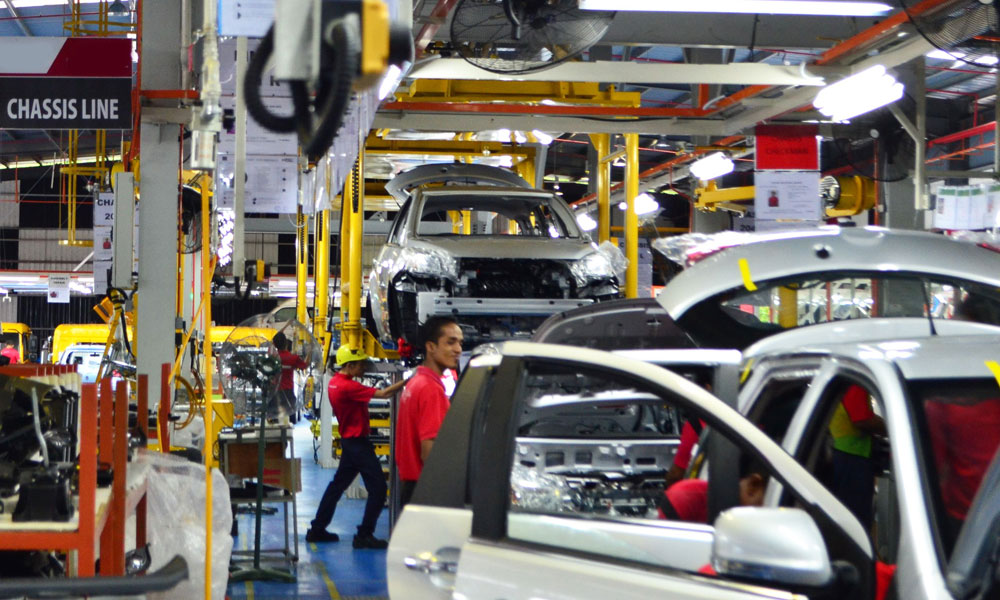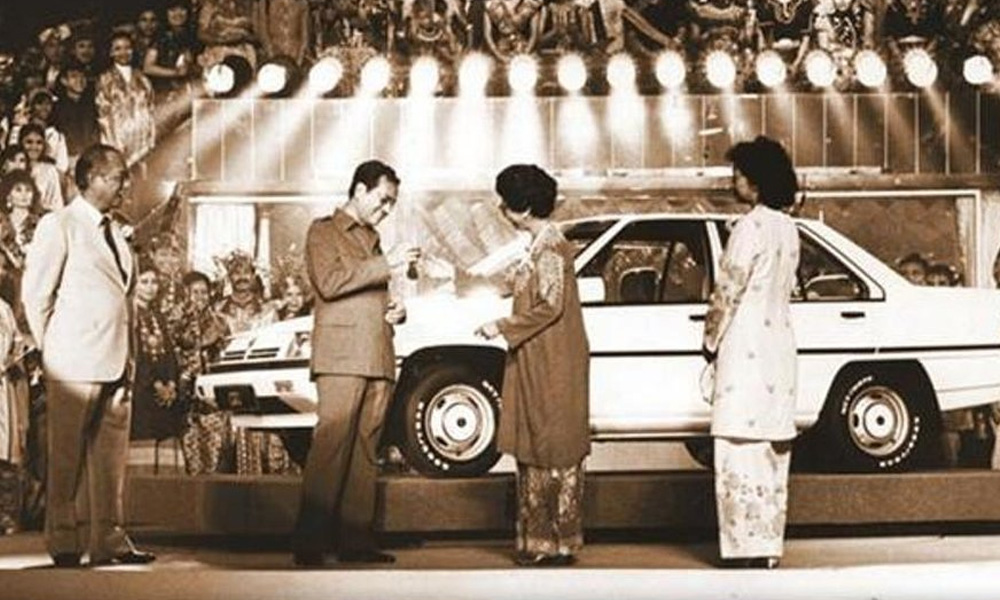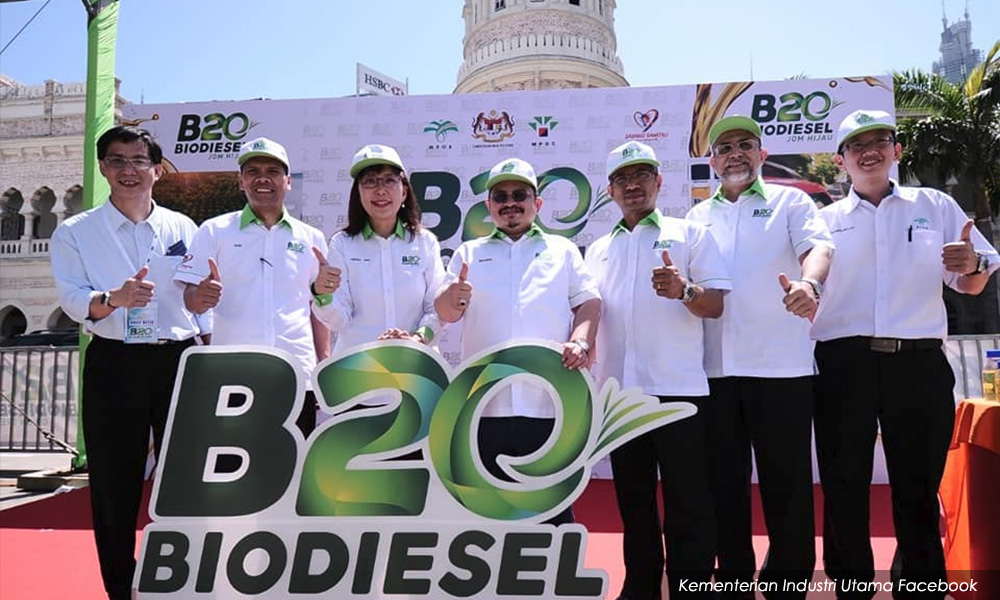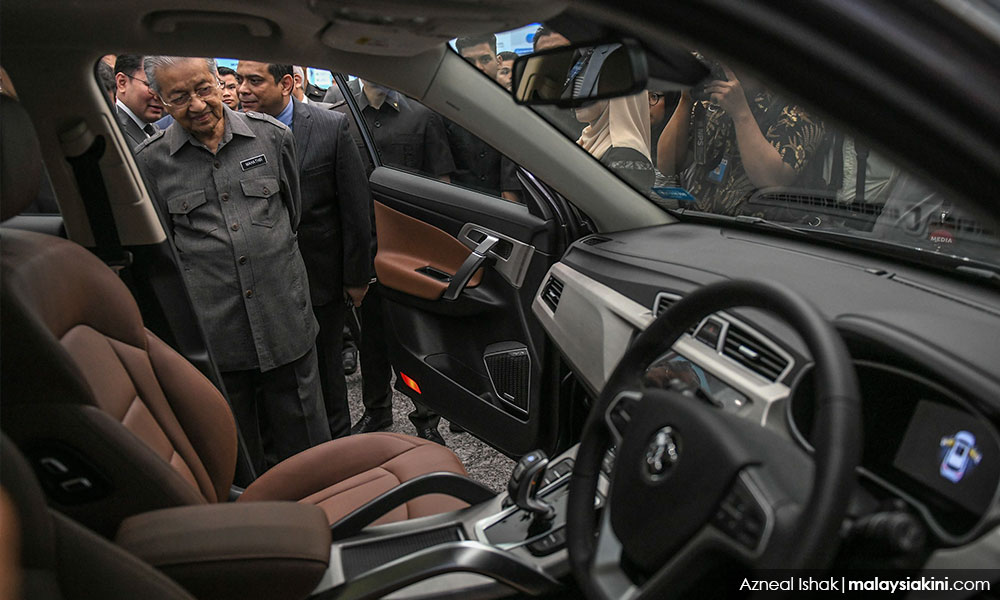The National Automotive Policy (NAP) 2020 which was launched today will incorporate three new advanced technology elements, namely Next Generation Vehicle, Mobility as a Service and Industrial Revolution 4.0.
Prime Minister Dr Mahathir Mohamad said vehicle technology is a critical development focus for today’s global carmakers to enhance vehicle safety as well as to make mobility more intelligent and environmentally-friendly.
He said apart from aligning with current technological trends, the NAP 2020 also targets to enhance current policies while introducing new measures which would be a holistic industrial development policy, catering to different needs and expectations of various stakeholders within the value chain.
“In this regard, NAP 2020 has considered all possible elements in the areas of research and development, participation of domestic companies in the local and global supply chain, engineering activities, capability and capacity-building of local talent, enhancement of exports as well as investment incentives,” he said in his keynote speech at the launch of NAP 2020 Kuala Lumpur today.
Mahathir added the automotive industry and related sectors have employed more than 600,000 people and contribute 4.0 percent to Malaysia’s gross domestic product.

According to him, there are more than 20 manufacturing and assembly plants in the country producing passenger and commercial vehicles, as well as motorcycles and scooters.
“Moving downstream, there are about 53,000 aftermarket establishments and more than 600 automotive parts and component manufacturers that range from body panels, trim parts, powertrain parts, rubber parts and electrical and electronic parts.
“These numbers are not only impressive but also a testament to how a developing country such as Malaysia could be a strong player in a concentrated industry such as this in the last three decades,” he said.
The premier added that another important feature of the NAP 2020 is the continuous endeavour towards sustainable production where across the globe, the circular economy model is becoming the norm and the success of an industry or a sector is now being measured by, among others, the carbon footprint.
“The automotive industry has gone through the same phases of the industrial revolution. From coal to fuel-powered engines, the next generation vehicles are now engineered by powertrain of hybrid, electric and hydrogen fuel cells.”
The promotion and adoption of green technology for energy-efficient vehicles and the next generation vehicles he said, will need to be supported by the right ecosystem and infrastructure for it to be sustainable and attractive.
“Facilities for end-of-lifecycle battery cells and waste management and treatment will be enhanced, if not established, which will then complete the entire ecosystem for not only the automotive industry but also for other related industries,” said Mahathir.
Mahathir stressed that all these high-tech infrastructure and facilities will essentially help reduce the cost of production while completing the sustainable production cycle in the automotive industry as well as in the entire manufacturing sector in Malaysia.
“I am glad to know that the NAP 2020 will have plans to realise this through the designation of a dedicated industrial zone for circular economy business practices for the automotive industry,” he said.
The prime minister also reminisced when the first national car was launched in 1983.

He said the first national car aimed to turn Malaysia into a regional manufacturing powerhouse, shifting from a resource-rich country whose international presence depended much on international trade of agriculture commodities with a focus on the manufacturing sector.
“When we started this industry more than 35 years ago, many were sceptical about our aspiration. But today, Malaysia has become one of the most competitive markets for the automotive industry, and it has gone through many phases of development with many success stories to be told,” he said.
He added that the automotive sector is the logical choice as it was able to provide far greater economic spill-overs and create more job opportunities for the people.
With industrialisation, other related manufacturing sub-sectors were also created and grew in tandem with increased demands for raw materials such as rubber, steel, plastics and petrochemicals, he said.
“Apart from that, industrialisation opened up more services-related sectors and provided high-value downstream business and employment opportunities such as in the areas of wholesale, retail, after-sales services and marketing,” said the prime minister.
The automotive industry according to the prime minister, goes beyond mere car manufacturing as it also spurs the development of new technologies that will in turn complement other industrial sectors.
“The technologies embedded within the car provide immense opportunities for related industrial sectors to break new grounds. Linkages to both upstream sectors such as steel, plastics and rubber and the downstream value chain demonstrate that the automotive industry is one of the most important and strategic contributors to the overall growth of the manufacturing sector,” he said.

Meanwhile, in supporting the green technology approach, Mahathir said that starting Jan 1, 2020, palm biodiesel has been upgraded from B10 to B20 category in the transport sector and this will continue to be enhanced to B30 before the year 2025 or even earlier.
To facilitate the implementation, NAP 2020 will provide supporting measures, including the development of standards for testing and research to support the increase in blending of palm oil biodiesel.
“All the emphasis under the NAP 2020 are our commitment to the industry that we too are moving in the same direction with other major countries in keeping up with global trends, be it technologically or environmentally,” he said.
Stressing that the automotive sector is not limited to only car-making, Mahathir said that it also opens door to boundless engineering possibilities that could complement other economic sectors.
“This is well illustrated by automotive-producing nations where the development of vendors for parts and components production has created a large number of jobs and skilled workforce, as well as generated many business opportunities for small and medium enterprises.
“It is within this context that the existence of local automotive industry will continue to spur other opportunities for Malaysians to develop our own engineering capabilities and to enhance our skills and knowledge in technology,” he said.
He also called upon all industry players, from original equipment manufacturers to local companies, to continue to work together to increase utilisation of local companies in high value-added activities of the domestic as well as global supply chains.
“Together we can create that positive economic spill-overs particularly in the transfer of technology and provision of jobs while expanding investments and increasing exports,” he said.

As for the new Malaysian Vehicle Project, the government he said, has made a conscious decision under NAP 2020 to implement the project by building on its efforts in developing two national cars and one national motorcycle.
“The proposed new Malaysian Vehicle Project will emphasise on research and development and incorporation of the latest technologies in order to be competitive in both domestic and global markets. New technology clusters as well as new expert workforce, especially in the field of automotive engineering would be developed consequently,” he said.
The prime minister added that the new Malaysian Vehicle Project is expected to contribute significantly to the nation’s economic development through its support for both upstream and downstream industries.
The project he said, will also create the demand for other related materials, such as, high-grade steel, plastics, rubber and petrochemical products, which will stimulate further growth of these sub-sectors.
“Besides the new Malaysian Vehicle Project, the government is also committed to ensuring that Malaysia continues to prosper, and its wealth and prosperity are shared in an equitable manner among all.
“To achieve this aspiration, a number of key policies have been introduced including Shared Prosperity Vision 2030, Industry4WRD and National Transport Policy to accelerate Malaysia’s economic growth and development,” he said.
The prime minister added that with the launching of NAP 2020 today, it should be viewed by everyone as a balanced and comprehensive policy document that will consider the interest of all stakeholders in the domestic automotive sector.
“In conclusion, the real success of NAP 2020, however, lies in the implementation of its seven respective roadmaps and blueprints. As such, I call upon all stakeholders, from government agencies to the private sector, to continue to work together objectively as we roll out the implementation of NAP 2020,” he said.
- Bernama

